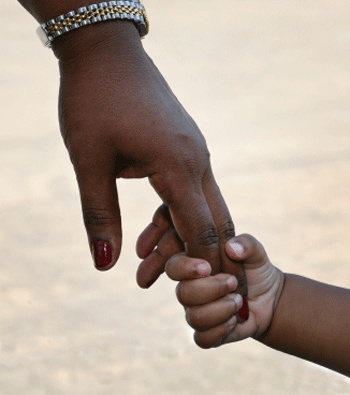
It is a decision no man should have to make.
Twenty minutes seems so trivial in the detritus of daily life. It is all that is required to take a bath, finish a meal, make a phone call.
It was also all that was needed to bring us to this point, to this decision.
Underneath the profusion of life support machines, she is pale, perfectly still, her stomach pushing through the blanket. I hold her limp hands in mine, rub them vigorously as if that would call back life into them, falter at the unbearableness of the situation.
“Are you ready?”
It takes the weight of the doctor’s hands on my back for me to jerk out of the hopelessness. His eyes are rimmed with compassion, yet I know he is just doing his job. Today, it is my family’s tragedy, tomorrow it would be another’s.
“No.” My voice comes out hoarse, scratchy, dead. “Give me a couple of minutes.”
He eases out of the room. I’m sure he will pass through the throng of family members that have come today. Mima’s parents, the sister who flew in from London, the other sister who has not left the hospital for more than two hours since all this began.
Mima, sweet Mima. Mima of the twinkling black eyes, infectious smile, gregarious personality.
Life goes fast when you’re with the woman you desperately love. Two years of courtship, five years of marriage. One evening, I came home to soft music, dinner by candle light, and exciting news. We would be parents at last.
She practically blossomed during the pregnancy. Her eternally thin frame took on a robustness that was endearing, her cheeks were infused with color, and her delight was contagious.
Until that evening.
Watching a football match in the den, I suddenly became aware of a silence that should not be. Jemima had gone into the bathroom for a shower for over ten minutes yet there was no sound of water. Easing myself off the couch, I went in search of her.
She was naked, bluish, crumpled haphazardly on the tiled floor. A knot the size of an egg was on her forehead.
Fifteen minutes later, the ambulance came. I realized I must have called them, must have wrapped Mima in a blanket, must have lifted her off the floor and cradled her in my arms. I was numb with a cold that seemed to originate from my heart, yet my face was flushed with sweat.
They hooked her to an oxygen mask, ran a battery of tests all night long, brought me the news the following morning as I warmed my cold hands with a cup of coffee in the reception.
Mima was brain dead. The fall had rendered her unconscious and her brain had been denied of oxygen for too long. There was nothing they could do.
At five months, the fetus was too young to survive, the neurologist said, but they could keep Mima on life support long enough for the baby to have a fighting chance. Even then, there was no telling if the baby wouldn’t be damaged. For it had partaken of the deprivation of oxygen with his mother.
For a week, I hovered in the twilight of grief and despair. Surrounded by family members, I felt alone and raw. I slept in the same room as Mima, prayed endlessly for a miracle, was horrified at the prospect of delegating her to the position of a womb just so our son could be born, didn’t know what to do.
Sighing, I release my wife’s hands, rise to my feet and run my hand through my hair. Cracking open the door just a little bit, I call for Dr. Richard.
“I’m ready.” I say quietly, not knowing if my decision is right or wrong, but intent on giving my wife and son the freedom they should have.
When the doctor nods, I walk over to the life support machine, hesitate for the briefest of moments, and flick the switch just as I’d been shown.
I release my wife and son into the kingdom of God.
Written By FOLAKEMI EMEM-AKPAN
Comments
Post a Comment